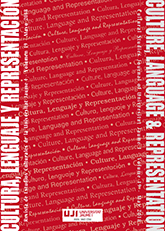Hyper-Eroticism as a Source of Spiritual and Material Agency in Trilogía sucia de La Habana
##plugins.themes.bootstrap3.article.main##
Resum
In Trilogía sucia de La Habana, Pedro Juan Gutiérrez has defied traditional representations of the sexual body in Latin American literature by depicting the erotic as an agent of meditation and multiplication within an environment of deprivation. The author explores the diverse ways in which the erotic is a means by which to deconstruct subjectivity and provide a political critique against social oppression. The narration is situated within a socialist Cuban context of surveillance during the special period, and depicts the many acts of survival its citizens engage in on a daily basis amidst an economic crisis where basic products are scarce. With the absence of material goods, as well as certain political freedoms, the characters in the novel manifest their continuous desires by engaging in a hyper-production of the erotic as a source of power. While recounting personal stories of love and sex, the characters meditate on their social condition in addition to their own private desires. Ultimately, in accord with eroticism as a weapon of social change and critique, Pedro Juan Gutiérrez acknowledges the body traditionally dismissed in dominant Western thought and inscribes new representations where it can be beautiful while being impoverished, artistically tormented and imperfect. Subsequently, this paper analyses hyper-eroticism as a source of reflection and material agency, leading to new inscriptions of erotic potential as a source for social change.
Descàrregues
##plugins.themes.bootstrap3.article.details##
S'utilitza una llicència de drets d'autor CREATIVE COMMONS d'accés obert. Aquells autors les obres dels quals siguin publicades per aquesta revista, accepten els termes següents:
- a. Els autors conservaran els seus drets d'autor i garantiran a la revista el dret a publicar primer la seva obra, que estarà simultàniament subjecta a la Llicència de Reconeixement Creative Commons CC BY SA que permet a tercers compartir l'obra sempre que s'indiqui el seu autor i la seva primera publicació.
- b. Els autors podran adoptar altres contractes de llicència no exclusius per a la distribució de la versió publicada de l'obra (per exemple, dipositar-la en un arxiu telemàtic institucional o publicar-la en un volum monogràfic) sempre que s'indiqui la publicació inicial en aquesta revista.
- Els autors poden -i es recomana- difondre la seva obra a través d'Internet (per exemple, en arxius telemàtics institucionals o a la seva pàgina web) abans i durant el procés de presentació, la qual cosa pot produir intercanvis interessants i augmentar les citacions de l'obra publicada.
Referències
BRENNAN, D. (2004): What’s Love Got to Do with It? Transnational Desires and Sex Tourism in the Dominican Republic, Durham, Duke University Press.
BUTLER, J. (1988): «Performative Acts and Gender Constitution: An Essay in Phenomenology and Feminist Theory», Theatre Journal 40.4: 519-531.
GUTIÉRREZ, P.J. (1998): Trilogía sucia de La Habana, Barcelona, Editorial Anagrama.
LORDE, A. (1984): Sister Outsider: Essays and Speeches, New York, Crossing Press.
MAHON, A. (2005): Eroticism and Art, Oxford, Oxford University Press.
MOSES, C. (2000): Real Life in Castro’s Cuba, Wilmington, A Scholarly Resources Inc. Imprint.
SANDOVAL, C. (2000): Methodology of the Oppressed, Minneapolis, University of Minnesota Press.
SPELMAN, E.V. (1999): «Woman as Body: Ancient and Contemporary Views» in PRICE, J.; M. SHRLDRICK (eds.) (1999): Feminist Theory and the Body: A Reader, New York, Routledge. 32-41.


